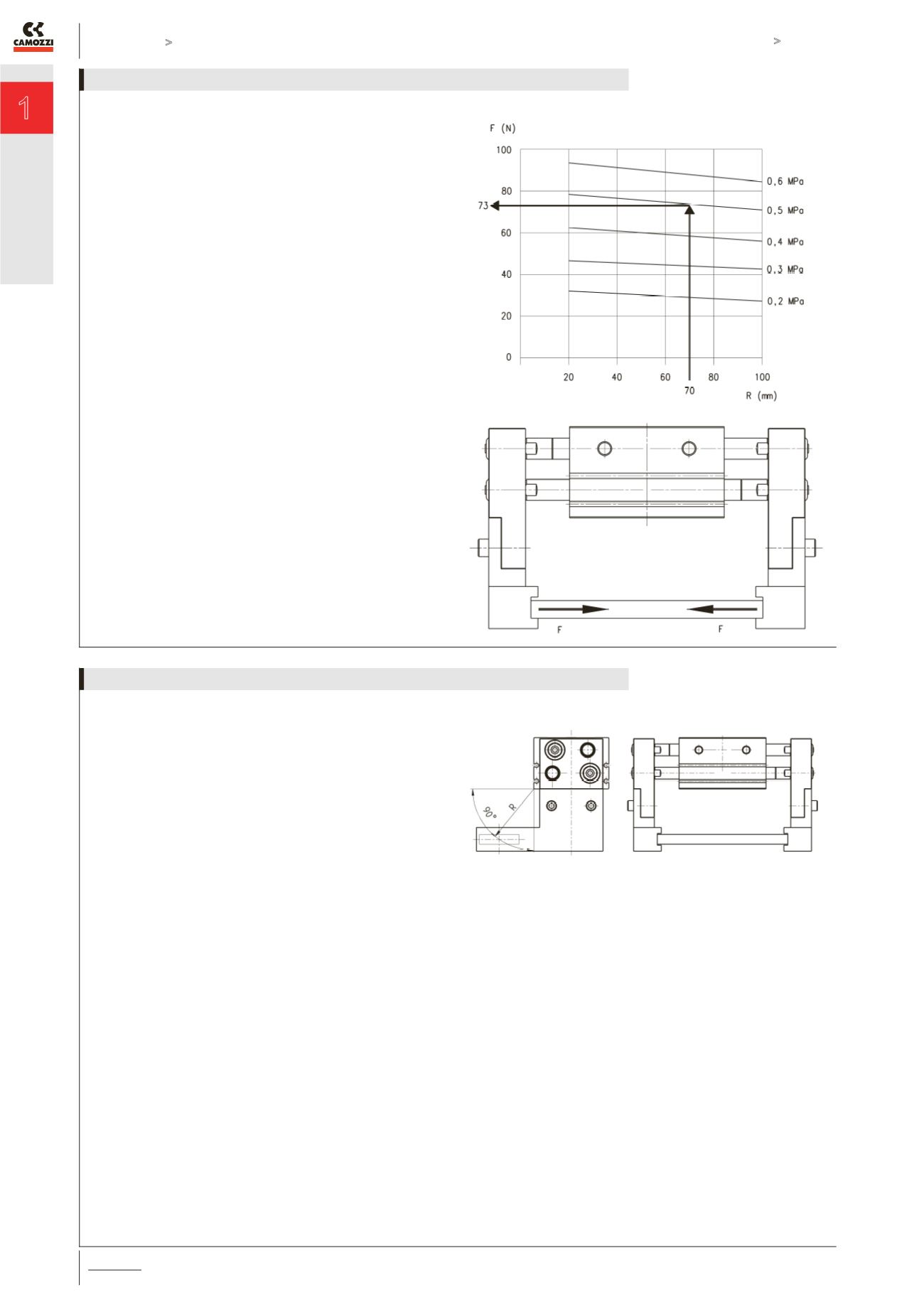

Products designed for industrial applications.
General terms and conditions for sale are available on
www.camozzi.com.1
Series CGLN wide opening parallel grippers
MOVEMENT >
CATALOGUE
>
Release 8.7
/7.27.04
1
MOVEMENT
The selection of the size of the gripper has to be carried out
according to the weight of the object that has to be moved. It is
strongly recommended to select a gripper bore able to develop
a gripping force at least 20 times higher than the weight of
the object. In case of great acceleration or impact during the
moving of the object, it is necessary to increase the factor of
safety.
EXAMPLE OF CALCULATION (see the diagram on the right)
Size of the object to be moved (side x side) = 200 m x 20 mm
Weight of the object to be moved (Kg) = 0.3
Factor of safety = 20
Gripping moment R (mm) = 70
Working pressure (MPa) = 0.5
Minimum required gripping force Fmin = 0.3kg x 20 x 9.8m/s²
= 60N
Through the diagrams “Effective Gripping force” we deduce
from the above mentioned conditions that the gripping force
with the mod. CGLN-20 is 73N, that is 24 times the weight of
the object.
The condition requiring that gripping force is at least 20 times
higher than the set gripping force is thus satisfied.
Once the gripper size is chosen, select a stroke that allows to
have a maximum opening which is wider than the size of the
object to be moved.
In the case above the gripper CGLN-20-80 is the right choice.
F = 220 mm > 200 mm
ACTUAL GRIPPING FORCE (F)
The shown gripping force corresponds to the gripping force of
a finger when all fingers (or accessories) are in contact with the
load.
F = Pushing force of 1 finger
Sizing criteria: 1) GRIPPING FORCE ANALYSIS
The R gripping distance of the object has to meet the
parameters of the lines of force which are indicated for each
pressure in the diagrams “Effective grip force”.
If the R distance is exceeded, the load applied will be too much
overhanging, thus causing the screws to loosen as well as a
reduced component life.
R = gripping distance (mm)
Sizing criteria: 2) GRIPPING DISTANCE ANALYSIS



















